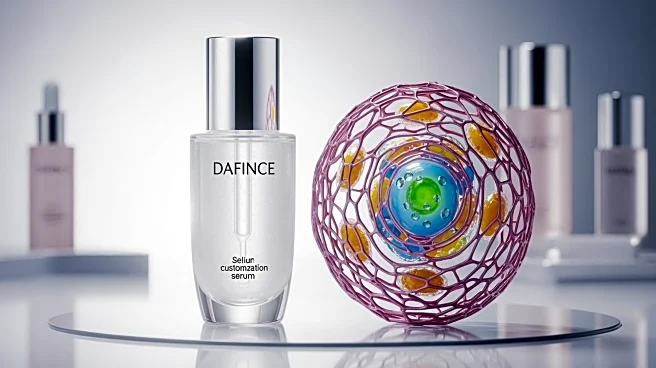What's Happening?
The US cosmetic and personal care market is undergoing significant changes driven by consumer demand for hyper-personalization, AI-driven diagnostics, and biologically rooted formulations. According to Coresight Research's report, US Beauty Retailing:
Themes, Concepts and Innovators, personalization has become a baseline standard in beauty retail. Brands are adopting modular systems for micro-batching and real-time customization based on biometric data. Companies like L’Oréal, Estée Lauder, and Unilever are integrating AI-driven skin analysis tools and biosensor technology to deliver individualized beauty solutions. The report identifies AI and biotechnology as key drivers of innovation across the beauty value chain.
Why It's Important?
The shift towards personalization and technology integration in beauty retail reflects broader trends in consumer expectations for tailored experiences. As beauty overlaps with wellness, the industry is redefining efficacy standards and partnering with biotech to develop sustainable, high-performance ingredients. This evolution signals a move towards wellness and longevity, with brands emphasizing biological outcomes over traditional claims. The competitive pressure from indie and digitally native brands is prompting larger manufacturers to adopt agile R&D systems and invest in AI and biotech startups to maintain relevance.
What's Next?
The beauty industry is expected to continue evolving towards intent-first retailing, where consumer purchase decisions are driven by need rather than platform. Digital platforms will play a growing role in subscription-based replenishment and AI-driven recommendations, while physical stores will focus on immersive experiences. Manufacturing strategies are also shifting due to geopolitical uncertainty and tariff volatility, with brands adopting multi-hub production models and regional expansions.
Beyond the Headlines
The integration of AI and biotechnology in beauty retail raises ethical and cultural considerations, particularly regarding data privacy and the use of biometric information. As the industry moves towards wellness-driven beauty, there may be implications for regulatory standards and consumer perceptions of efficacy and safety.















